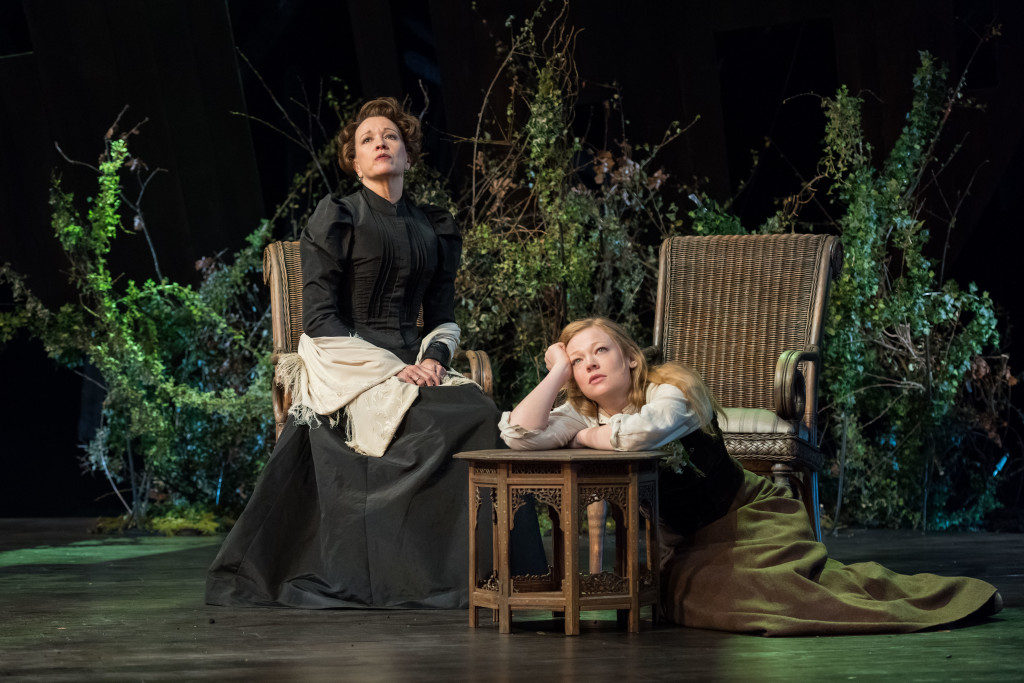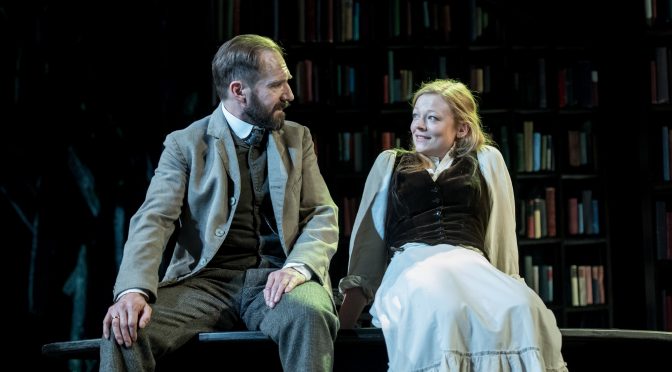Matthew Warchus’ finest work since taking charge at the Old Vic marks new ground for the director – his first Ibsen play. With a vivid new adaptation by David Hare and a lavish set – with a trick up its sleeve – from Rob Howell, this is a luxurious production with a superb cast. In this demanding play of ideas, there’s a marriage in turmoil, plenty of hypocrisy, painful psychological insight and a mid-life crisis that, at times, poses as philosophy. Miraculously, it’s all present and correct.
A trio of women make life, let’s say, complicated, for the eponymous subject of the play, Halvard Solness. Fearing for the future, Solness is paranoid that “the young will arrive”, while also guilty about his past – his career success making him the archetypal Man who had all the luck. There’s the overdevoted bookkeeper (Charlie Cameron) he uses despicably. There’s his dutiful wife, a role made weighty by an excellent performance from Linda Emond. Above all, there’s the enigmatic Hilde, who Solness once encountered as a child and creepily promised to make a princess. Now Hilde’s at the door, demanding her castle in the air and showing an unhealthy interest in steeples. This London debut from rising Australian star Sarah Snook is one people will be talking about for a long time – Snook brings a deep-voiced, earthy quality to this ethereal, childish and dangerous heroine.

In the title role, Ralph Fiennes gives one of the finest performances of his career. In his studio, his bullying lothario is convincingly charismatic and dry witted – Fiennes has always been good at lofty but here we’re allowed to laugh at the character as well, a clever layering that squeezes out the text’s suggestions and innuendo. Solness’ ego never takes a break. But there’s something wrong. His artistic output is linked to an argument with God and any mistakes or errors of judgment become a question of free will. Accounting for Hilde’s strange hold over him, there’s talk of trolls and devils, and a belief that he has some kind of supernatural help, making his wishes comes true “mercilessly”.
With Ibsen revealing cruel truths and Fiennes up to the job of depicting them, we come to see the “soft and gentle” side Solness’ wife claims exist. The pain at the loss of his children and disappointment that, while he builds homes, there is “nothing but despair” in his own, means the solipsism slips. And finally, there’s fear, expressed as crippling vertigo, through which we fully appreciate the deconstruction of the character Fiennes so carefully presents. It’s a masterfully built performance that should not be missed.
Until 19 March 2016
Photos by Manuel Harlan

